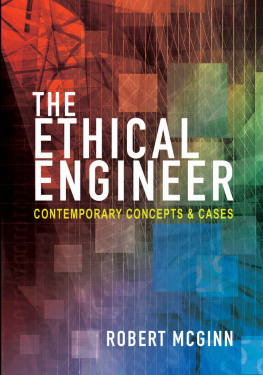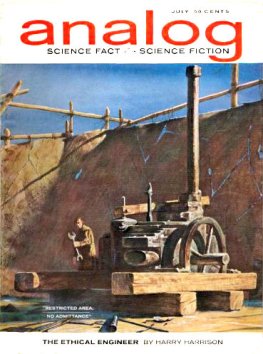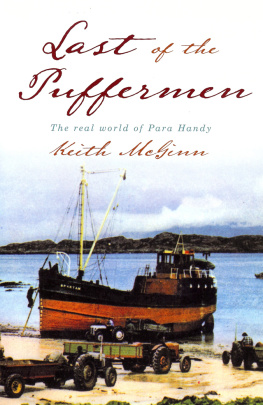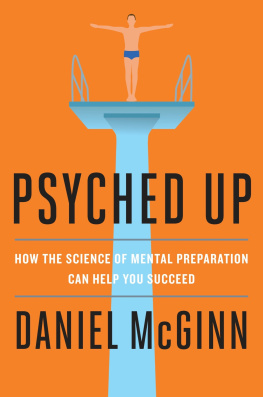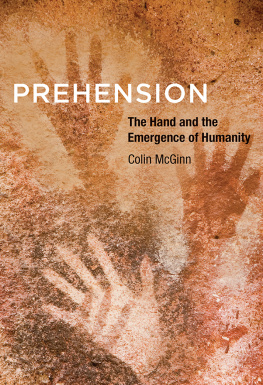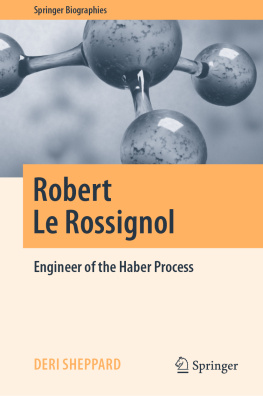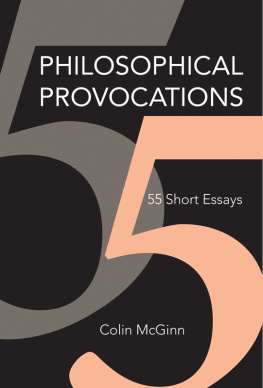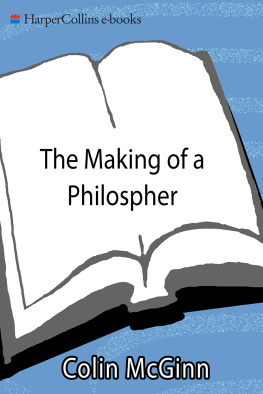Robert McGinn - The Ethical Engineer
Here you can read online Robert McGinn - The Ethical Engineer full text of the book (entire story) in english for free. Download pdf and epub, get meaning, cover and reviews about this ebook. year: 2018, publisher: Princeton University Press, genre: Romance novel. Description of the work, (preface) as well as reviews are available. Best literature library LitArk.com created for fans of good reading and offers a wide selection of genres:
Romance novel
Science fiction
Adventure
Detective
Science
History
Home and family
Prose
Art
Politics
Computer
Non-fiction
Religion
Business
Children
Humor
Choose a favorite category and find really read worthwhile books. Enjoy immersion in the world of imagination, feel the emotions of the characters or learn something new for yourself, make an fascinating discovery.
- Book:The Ethical Engineer
- Author:
- Publisher:Princeton University Press
- Genre:
- Year:2018
- Rating:4 / 5
- Favourites:Add to favourites
- Your mark:
- 80
- 1
- 2
- 3
- 4
- 5
The Ethical Engineer: summary, description and annotation
We offer to read an annotation, description, summary or preface (depends on what the author of the book "The Ethical Engineer" wrote himself). If you haven't found the necessary information about the book — write in the comments, we will try to find it.
Robert McGinn: author's other books
Who wrote The Ethical Engineer? Find out the surname, the name of the author of the book and a list of all author's works by series.
The Ethical Engineer — read online for free the complete book (whole text) full work
Below is the text of the book, divided by pages. System saving the place of the last page read, allows you to conveniently read the book "The Ethical Engineer" online for free, without having to search again every time where you left off. Put a bookmark, and you can go to the page where you finished reading at any time.
Font size:
Interval:
Bookmark:
THE ETHICAL ENGINEER
THE ETHICAL ENGINEER
CONTEMPORARY CONCEPTS AND CASES
ROBERT MCGINN
PRINCETON UNIVERSITY PRESS
PRINCETON AND OXFORD
Copyright 2018 by Princeton University Press
Published by Princeton University Press,
41 William Street, Princeton, New Jersey 08540
In the United Kingdom: Princeton University Press,
6 Oxford Street, Woodstock, Oxfordshire OX20 1TR
press.princeton.edu
All Rights Reserved
ISBN 978-0-691-17769-4
ISBN (pbk.) 978-0-691-17770-0
Library of Congress Control Number: 2017958781
British Library Cataloging-in-Publication Data is available
This book has been composed in Sabon LT Std
Printed on acid-free paper.
Printed in the United States of America
1 3 5 7 9 10 8 6 4 2
For Carol and Dick, Jan and Howard,
Kris and Steve, and Wanda and Joe,
in gratitude for abiding friendship
And for Birgit
CONTENTS
PREFACE
I t is time for study of ethical issues in engineering to become an integral part of engineering education.
Reflecting that conviction, the main goal of this book is to help engineering students and practicing engineers enhance their understanding of ethical issues that arise in engineering practice. It is hoped that through reading it, they will become better able to recognize a wide range of ethical issues in engineering work and to think about them in a critical, comprehensive, and context-sensitive way. A secondary goal of this book is to raise awareness of technical, social, and personal characteristics of engineering situations that can induce or press engineers to engage in misconduct.
Some books on engineering ethics devote considerable space to classical ethical theories. The real-life cases they contain are often described and discussed in cursory fashion. Other engineering ethics books are anthologies of actual cases, each analyzed by a different author with her or his own approach. Still others are multiauthor hybrids, combining case studies of real-life episodes with philosophical essays on concepts or principles relevant to engineering ethics. Few show a practical, foundational approach to exploring ethical issues in engineering being brought to bear on a wide range of real-life cases. The bulk of this book is devoted to case studies of ethical issues in engineering work. Fundamental ethical responsibilities of engineers are applied to real-life engineering situations to shed light on engineers context-specific ethical responsibilities.
Engineering students and practicing engineers who read this book with care will acquire intellectual resources useful for coming to grips with whatever ethical issues confront them in their future professional careers.
ACKNOWLEDGMENTS
Many individuals have supported my work on engineering ethics over the past two decades. School of Engineering colleagues who helped me in various ways include Brad Osgood, Steve Barley, Sheri Sheppard, Eric Roberts, Walter Vincenti, James Adams, Peter Glynn, Nick Bambos, and Tom Kenny. Engineering students in my Ethical Issues in Engineering course offered valuable feedback on a number of ideas and issues explored in this book.
In 2003, James Plummer, then dean of the Stanford School of Engineering, put me in touch with staff engineers and scientists at the Stanford Nanofabrication Facility (SNF). The ensuing collaborations enriched my approach to engineering ethics. Sandip Tiwari of Cornell University, former director of the National Nanotechnology Infrastructure Network (NNIN); Yoshio Nishi, former SNF faculty director; and Roger Howe, SNF faculty director and former director of NNIN, supported my research on nanotechnology-related ethical issues. SNF associate director Mary Tang improved and facilitated my surveys of nanotechnology researchers views about ethical issues related to their work.
Stephen Unger of Columbia University kindly read an early draft version of the text and offered valuable criticism and feedback. He also generously shared an explanation, a suggestion, and an example that have been incorporated into the text. My research collaborator and virtual colleague, Rafael Pardo Avellaneda, of the Spanish National Research Council (Consejo Superior de Investigaciones Cientficas, CSIC) in Madrid, made valuable suggestions on survey design and data analysis. Howard and Janice Oringer, Mathieu Desbrun, Richard Herman, Alan Petersen, Roya Maboudian, and various engineering lab directors afforded me opportunities to present early versions of parts of this work at Cal Tech, the University of Illinois at Urbana-Champaign, Spectra-Physics, the Exploratorium in San Francisco, and the University of California, Berkeley. Finally, I would like to thank Eric Henney of Princeton University Press for his professionalism and wise counsel.
Palo Alto, California
October 2017
THE ETHICAL ENGINEER
CHAPTER 1
The Ethics Gap in Contemporary Engineering
TWO VIGNETTES
During the night of December 23, 1984, one of the worst industrial disasters in history occurred at Union Carbides plant in Bhopal, Madhya Pradesh, India. Methyl isocyanate (MIC) liquid, an intermediate used in making Sevin, Union Carbides name for the pesticide carbaryl, came into contact with water, boiled violently, and turned into MIC gas. Unchecked by various safety systems, tons of highly toxic MIC gas escaped from storage tank E610.
In February 1992, I attended a conference on professional ethics at the University of Florida, Gainesville. On the shuttle bus to the conference hotel, the only other passenger turned out to be a chemical engineer. I asked him whether there was any consensus in the chemical engineering community about what had caused the Bhopal disaster. His response was immediate and succinct: Sabotage. Union Carbide has given the same explanation for three decades and continues to do so on its website.
President Ronald Reagan appointed the late Arthur Walker Jr., at the time a faculty member at Stanford University, to serve on the Presidential Commission on the Space Shuttle Challenger Accident. Reagan charged the commissioners with determining the cause of the accident. In late 1987, after the commission had submitted its final report, I ran into Professor Walker on the Stanford campus and invited him to give a talk about his commission experience to a faculty seminar on technology in society. After his talk, I asked Walker what was the single most important lesson to be learned from the Challenger disaster. He replied, Hire smarter engineers.
A GAP BETWEEN EDUCATION AND EXPERIENCE
The responses quoted in these vignettes are simplistic. The engineering outcomes involved cannot be explained as simply as those succinct replies suggest. The proffered explanations probably reflect the narrow educational backgrounds of those who offered them. Few intending engineers (or scientists) ever take ethics or social science classes that focus on engineering (or science) projects or practices. They are therefore predisposed to attribute the outcomes of destructive engineering episodes to technical failures or clear-cut, nontechnical factors. The latter include individual cognitive shortcomings, such as mediocre intellectual capability on the part of project engineers, and individual political motives, such as vengeful sabotage by a disgruntled employee.
Part of the appeal of such explanations is that they point up problems that can be readily solved by making specific changes, for example, hiring smarter engineers, and screening potential employees more rigorously. Engineers who never took ethics or social science classes closely related to engineering endeavor rarely consider the possibility that some harmful engineering episodes may be partly attributable to ethically problematic conduct on the part of engineer-participants. They also rarely consider the possibility that social or technical features of the often-complex contexts involved can help set the stage for and elicit such conduct.
Next pageFont size:
Interval:
Bookmark:
Similar books «The Ethical Engineer»
Look at similar books to The Ethical Engineer. We have selected literature similar in name and meaning in the hope of providing readers with more options to find new, interesting, not yet read works.
Discussion, reviews of the book The Ethical Engineer and just readers' own opinions. Leave your comments, write what you think about the work, its meaning or the main characters. Specify what exactly you liked and what you didn't like, and why you think so.

